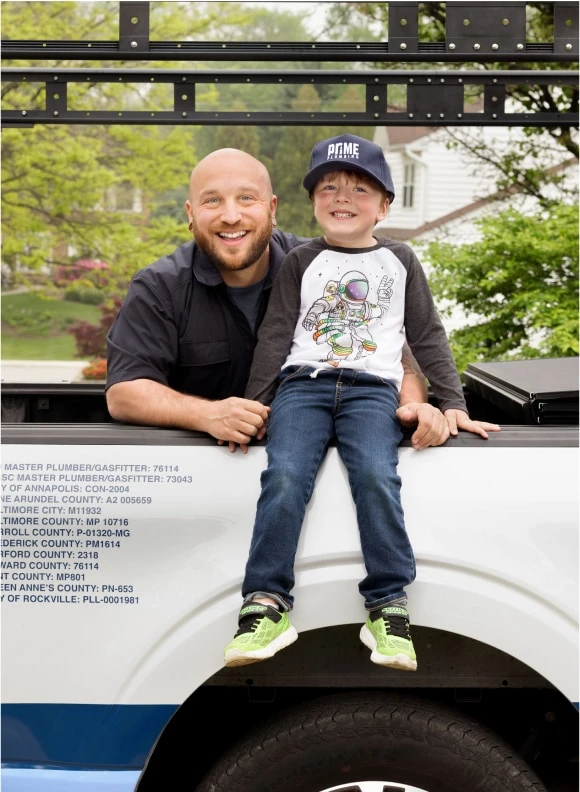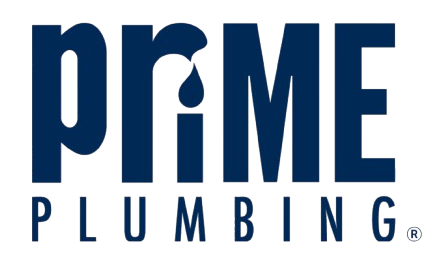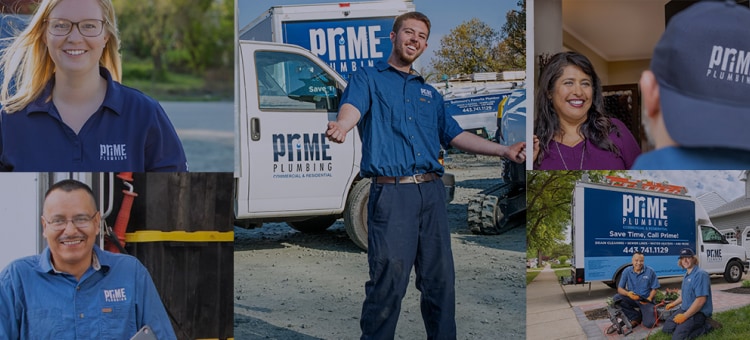Service 7 Days a Week
Proudly Serving Baltimore
The Top 10 Plumbing Checks Every Homebuyer Should Make

Save Time, Call Prime!
Searching for a new home? While exciting, homebuying can also be stressful. Prime Plumbing is here to help ease your worries so you can search with confidence. While you scout locations and admire curb appeal, our pros will help you avoid hidden plumbing disasters. We’ve compiled a checklist of 10 invaluable tips to ensure your dream home doesn’t turn into a plumbing nightmare.
Your Checklist for Evaluating a Home Plumbing System
A thorough plumbing inspection is necessary when purchasing a new home. The experts at Prime Plumbing recommend assessing the following areas to ensure your plumbing system is in good condition:
✔ Water heaters: The water heater plays a vital role in your home’s plumbing setup. Find out how old it is, if the answer is 10 years or more, you might need to replace it soon. Look for signs of rust or corrosion on the tank that could signal a leak. Make sure the system’s capacity is enough for the household’s hot water needs.
✔ Pipes/water supply lines: When viewing older homes, be aware that they might have galvanized steel pipes. These pipes may corrode, leading to low water pressure, rusty water, and possible health risks. In newer constructions, focus on confirming the quality of the materials used for the pipes. Most experts rate copper pipes with lead-free joints as the safest material for water pipes.
Inspect the water supply lines thoroughly, ensuring the main line is free from leaks or corrosion. Signs of dampness or water stains on walls, floors, or around toilets, appliances, pipes, or fixtures may indicate an indoor or outdoor plumbing leak. The appearance of mold or musty smells may signal hidden leaks.
✔ Water quality: Poor water quality can affect your health and plumbing systems. Test the water quality for contaminants like lead, bacteria, or high levels of minerals. If the water is from a well, check that the well is properly maintained and up to code. In areas with hard water, check if the home has a water softener system.
✔ Fixtures/faucets: Test all faucets and fixtures in the house for leaks, drips, and proper functionality. Pay close attention to the kitchen and bathroom areas, where leaks are more common.
✔ Water pressure: No one likes dealing with weak water pressure. Test the water pressure in sinks, showers, and faucets to ensure it’s adequate throughout the house. Turn on multiple faucets simultaneously to test the water pressure.
✔ Toilets: Flush each toilet to confirm that they don’t leak or run continuously. A running toilet can cost you a lot of water and money over time. Assess the condition of the toilet and its surrounding area. If you notice cracks in the porcelain, you might have to replace the toilet. Water around the base may signal a loose connection.
✔ Drains/drainage systems: Test the drains in sinks, tubs, and showers to make sure they drain properly and don’t back up. Slow draining is a sign of clogs or other issues in the plumbing system. Don’t forget to check out the drain traps as well to ensure they’re dry and have been assembled properly. If possible, avoid flex pipes, as they’re a common sign a non-professional has worked on the plumbing.
✔ Sewer lines/septic: Have a professional conduct a camera inspection of the sewer lines for any blockages, root intrusion, cracks, or other damage. Ask for copies of service records to ensure the septic system has been well-maintained and pumped regularly. Check the records for any signs of septic tank issues, such as foul odors or soggy areas in the yard.
✔ Outdoor Plumbing: Inspect outdoor faucets, hoses, and sprinkler systems for leaks or damage. Ensure that any outdoor plumbing is properly insulated to prevent freezing during the winter. Check out the gutters, downspouts, and drainage pipes to confirm they’re clear of debris and in good working order, and that water is draining away from the foundation.
✔ Water Meter and Shut-Off Valve: Locate the water meter and main shut-off valve. See if they’re easily accessible in case of emergencies. In the event of a plumbing emergency like a burst pipe, it’s crucial to quickly turn off the water.
Tips for Our Baltimore Communities
While plumbing issues can vary depending on factors such as climate and infrastructure, here are some common issues our neighbors in the Baltimore area may encounter.
- Prevent frozen pipes: Freezing winter temps can lead to frozen pipes. Ensure exposed pipes are well insulated.
- Know how old your plumbing is: Older homes with aging plumbing and sewer systems are common in our area. Regular inspection and maintenance are key.
- Check water hardness levels: Hard water is also common in our area, which can cause mineral buildup in pipes, faucets, and appliances. A water softening system can prolong the life of plumbing fixtures and appliances.
- Invest in a sump pump: Heavy rains and storms can lead to basement flooding in Baltimore. A sump pump with a backup battery can help prevent flooding and water damage.
Why Choose Prime Plumbing?
We’ve served our community for over a decade, always putting customers first. Our trained and experienced plumbing team can give you the best results with the best customer experience.
If you’re looking for five-star service with upfront pricing and flexible financing options, count on us! We’ll help you tackle any plumbing problem, from installing a new water heater to fixing a broken pipe.
Save time, call Prime! Contact us online or at 443-741-1129 for plumbing help in Baltimore.
The Difference With Prime
Get a FREE second opinion on water and sewer service, and septic repair/replacements!
Don’t Just Take Our Word for it

Why Choose Prime Plumbing?
Professional Services at an Affordable Price
- Transparent Pricing
- No Additional Charges for Overtime
- Flexible Financing Solutions
- Thorough Employee Background Checks
- Complimentary Second Opinions


